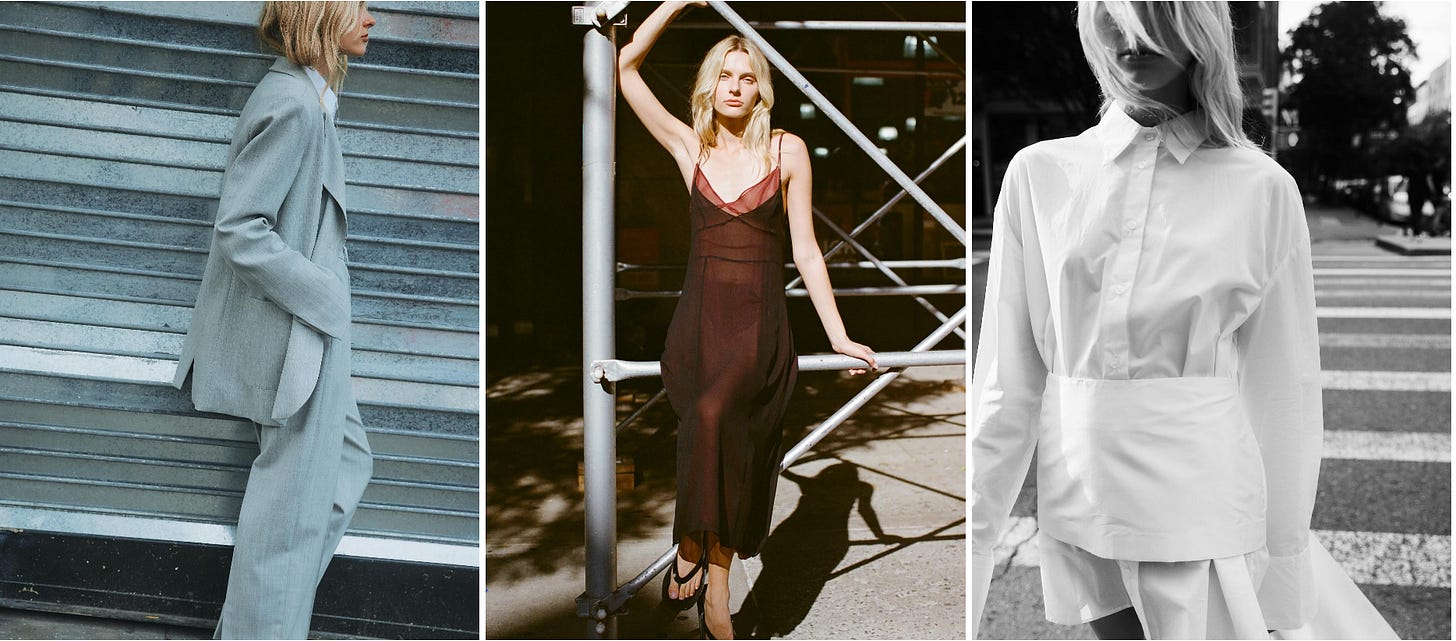Style Strategy 009: How to identify well-made clothes
Read this if you want to make sure your next fashion purchase is worth it.
Though I consider myself an expert shopper, there are the finer, technical elements of high quality garments that I just can’t articulate. It just feels better, but I’m not sure why. It’s sturdier, it seems more, finished.
I asked two fastidious designers (and Screenshot This readers) who have built their brands from the ground-up, Anna Quan, whose eponymous label dresses and shirting are renowned for subtle detailing set against a seemingly minimalistic silhouette, and Gabriella Pereira of Beare Park, a four-year-old brand that’s known for impeccable tailoring and easy elegance.
The easiest way to test quality, according to the both of them? “Simply turn the garment inside out and have a look,” says Pereira of Beare Park.
It’s obvious what to look out for when it comes even stitching that doesn’t have any loose ends and that aren’t too spread out and buttons that are firmly secured. And hems should not be serged. I hate visible serged hems, even if they’re a design feature.
More complex construction techniques like darts and yokes are another good sign that there’s attention given to the shape of a garment fortified by an understanding that the body is not flat, but a three-dimensional form.
With oversized, relaxed shapes in fashion at the moment, many companies can hide behind poorly cut garments in a bid that they’re oversized to compensate for the actual lack of technique in the design. And, relying on stretchy fabric to make something fitted is lazy.
What does poorly cut mean? It needs to fit a range of movements so that it’s comfortable (within reason — this isn’t sports apparel). I remember trying on a designer jacket and shrugging my shoulders and my arms feeling stiff in the armholes. When I pointed it out to the sales assistant, she responded, “Well, you’re not going to be doing it *that* often.” Which isn’t quite good enough.
What’s behind the paywall: what to look out for when it comes to print, seams, edge finishes, lining, zips and buttons.







